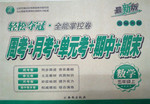题目内容
Months ago we sailed ten thousand miles across this open sea, which _______ the Pacific, and we met no storms.
A. was called B. is called C. had been called D. has been called
B
【详解】此题考查动词时态和语态的用法。this open sea, which _______ the Pacific这是表示一种客观存在的事实,所以正确答案应为B。

 轻松夺冠全能掌控卷系列答案
轻松夺冠全能掌控卷系列答案I still remember my first day at school in London and I was half-excited and half-frightened. On my way to school I wondered what sort of questions the other boys would ask me and practiced all the answers: “I am nine years old. I was born here but I haven’t lived here since I was two. I was living in Farley. It’s about thirty miles away. I came back to London two months ago.” I also wondered if it was the custom for boys to fight strangers like me, but I was tall for my age. I hoped they would decide not to risk it.
No one took any notice of me before school. I stood in the center of the playground, expecting someone to say “hello”, but no one spoke to me. When a teacher called my name and told me where my classroom was, one or two boys looked at me but that was all.
My teacher was called Mr. Jones. There were 42 boys in the class, so I didn’t stand out there, either, until the first lesson of the afternoon. Mr. Jones was very fond of Charles Dickens and he had decided to read aloud to us from David Copperfield, but first he asked several boys if they knew Dickens’ birthplace, but no one guessed right. A boy called Brian, the biggest in the class, said: “Timbuktu”, and Mr. Jones went red in the face. Then he asked me. I said: “Portsmouth”, and everyone stared at me because Mr. Jones said I was right. This didn’t make me very popular, of course.
“He thinks he’s clever,” I heard Brian say.
After that, we went out to the playground to play football. I was in Brian’s team, and he obviously had Dickens in mind because he told me to go in goal. No one ever wanted to be the goalkeeper.
“He’s big enough and useless enough.” Brian said when someone asked him why he had chosen me.
I suppose Mr. Jones, who served as the judge, remembered Dickens, too, because when the game was nearly over, Brian pushed one of the players on the other team, and he gave them a penalty (惩罚). As the boy kicked the ball to my right, I threw myself down instinctively (本能地) and saved it. All my team crowded round me. My bare knees were injured and bleeding. Brian took out a handkerchief and offered it to me.
“Do you want to join my gang (帮派)?” he said.
At the end of the day, I was no longer a stranger.
1.The writer prepared to answer all of the following questions EXCEPT “ ”.
|
A.How old are you? |
|
B.Where are you from? |
|
C.Do you want to join my gang? |
|
D.When did you come back to London? |
2.We can learn from the passage that .
|
A.boys were usually unfriendly to new students |
|
B.the writer was not greeted as he expected |
|
C.Brian praised the writer for his cleverness |
|
D.the writer was glad to be a goalkeeper |
3.The underlined part “I didn’t stand out” in paragraph 3 means that the writer was not .
|
A.noticeable |
B.welcome |
C.important |
D.foolish |
4.The writer was offered a handkerchief because .
|
A.he threw himself down and saved the goal |
|
B.he pushed a player on the other team |
|
C.he was beginning to be accepted |
|
D.he was no longer a newcomer |